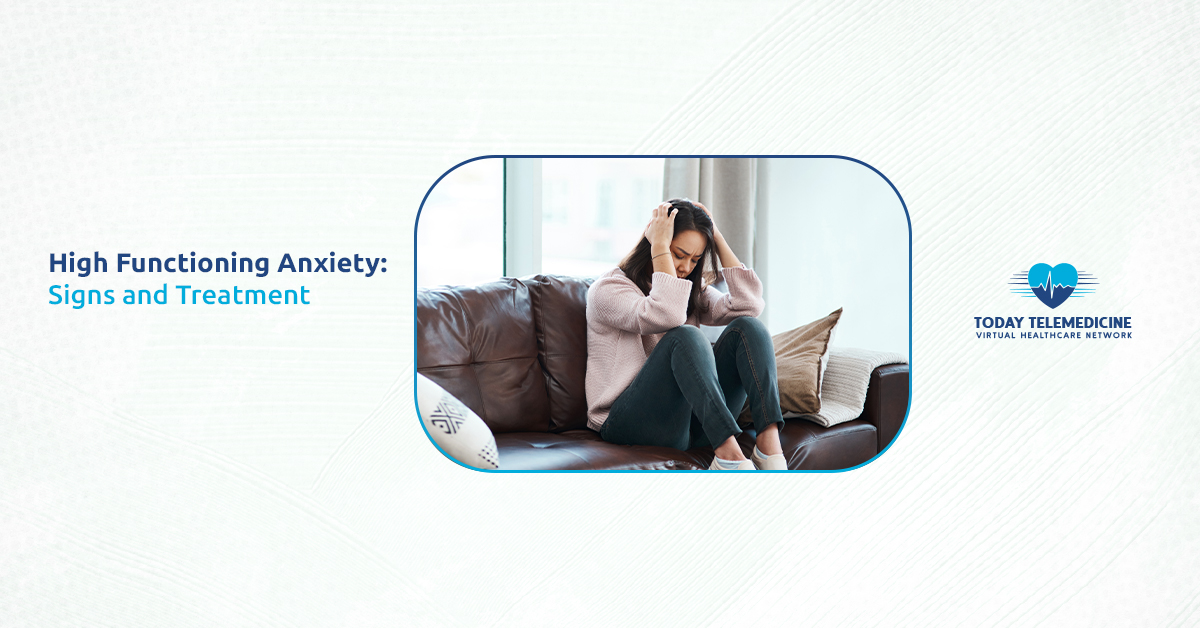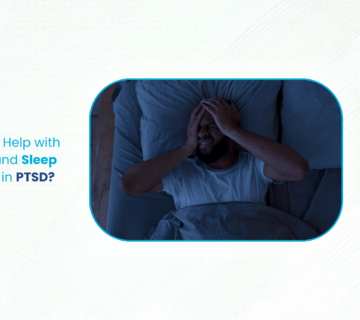You’re crushing it at work. Your friends have always seen you as the reliable one. From the outside, everything looks perfect. But inside? Not so much.
High-functioning anxiety doesn’t look like what most people picture when they think of anxiety. There’s no outright panic or visible distress.
It’s the perfectionist who can’t shut their mind off at night. It’s the overachiever who worries all the time but never lets it show.
Many are living with high-functioning anxiety and don’t even realize there is a name for it.
What Exactly Is High Functioning Anxiety?
High-functioning anxiety isn’t an official diagnosis, but it’s very real.
People seemingly cope well with their daily responsibilities, at times better than most. They can excel at work and maintain relationships, and basically have their lives in order.
The contrast is under the veil. While they are apparently doing fine on the outside, on the inside, they are coping with:
- Continuous worrying over what might happen in the future or mistakes in the past
- Unreasonable standards brought about by perfectionist tendencies
- Physical signs like tensed muscles or feeling jittery
- Anxious feelings of racing thoughts that prevent relaxation
- Desire for control in situations and relationships
What makes this kind of anxiety so insidious is that often it’s not even picked up on. Success can obscure the struggle, making it even more difficult to seek help.
The Subtle Indications to Observe For
High-functioning anxiety presents itself subtly. You might observe these patterns in yourself or someone you know:
Perfectionist Behaviors
- Setting unattainable goals and devastation upon not reaching them
- Spending so much time on tasks to get them ‘perfect’
- Finding it hard to delegate because ‘nobody else will do it the way you do’
- Frequently scolding oneself over small errors
Body Signs
The body frequently reveals what the mind works hard to keep a secret. The most common physical signs include:
- Tension headaches resulting from the jaw or shoulders being clenched most of the time
- Digestive problems occur when there’s an accumulation of stress
- Sleep problems and feeling tired most of the time, which also relates to being restless
Some people even experience shaking from anxiety, especially when they are under severe anxiety or in a highly stressful interview or presentation.
Social and Emotional Patterns
- Overthinking conversations after they’ve already happened
- Agreeing to everything so as not to disappoint others
- Inability to voice needs or draw lines
- Feeling like you’re on all the time with no rest
How High Functioning Anxiety Affects Daily Life
Its effects are not limited to just being stressed in one’s head. High-functioning anxiety has implications for every part of life:
You may do everything right and still find yourself swamped with way too much work, working many more hours than you have to, going over everything time and again, or shying away from new challenges even when it is your time to shine.
Relationships take a hit if you are constantly looking for reassurance, being overbearing, or controlling.
One might overly think about text messages or be overly consumed with what other people think of them.
Self-care is pushed to the background because there’s always something more important that needs to get done. Resting feels lazy, and relaxation feels unattainable.
Exhausting, right? And mostly, you know your concerns are unreasonable, but you can’t shut them off.
Treatment Options
The good news is that there are highly effective treatments for high-functioning anxiety.
Therapy
Cognitive Behavioral Therapy is most beneficial for high-functioning anxiety, and worry can be recognized and dealt with through practical strategies.
CBT is factually known to work for a great variety of anxiety types!
Medical and Psychiatry Support
For some, it becomes difficult to manage the symptoms of anxiety in an effective manner.
If you find your anxiety is severe or if you feel you would benefit from professional medical advice then Today Telemedicine’s psychiatry services provide expert help, including medication management only when appropriate.
Self-Management Tips
Although they say professional help is useful, there are things you can do every day:
- Set modest goals rather than unrealistic ones
- Say no to energy-sapping commitments in any way possible
- Separate work and personal life
- Come up with some calming pre-bedtime habits that will let your mind know it is time to rest
- Get regular exercise to help release built-up pressure from your body and boost your happiness
Healthy Habits
Little things can add up to make a difference:
- Limit caffeine in your system if it’s adding to your jitters
- Make sleep a priority with consistent routines at bedtime
- Connection with supportive people
- Do something you love, not just something you can be productive at
When to Go to A Professional
Anxiety might be interfering with your sleep, your relationships, or your overall life, and if it is, it’s time to get help.
Professional help becomes essential when you notice:
- Physical symptoms disrupting day-to-day activities
- Inability to concentrate despite best efforts
- Avoidance of situations or opportunities due to worry
- Use of unhealthy ‘coping’ mechanisms (e.g., alcohol, overworking)
Start Feeling Better
High functioning anxiety doesn’t have to be just something you live with. With the right strategies and support, you can retain your drive and success and find real peace of mind.
At Today Telemedicine, our licensed therapist provides evidence-based care that fits into your busy schedule.
You can access professional support wherever you feel best via a secure video session.
Do not let perfectionism get in the way of getting the help you need and deserve. Get in touch with us today.
FAQs
What is the treatment for high-functioning anxiety?
- CBT
- Mindfulness
- Mind lifestyle changes
Why am I riddled with anxiety?
Anxiety, in many cases, develops from personality traits (like perfectionism), life experiences, and sometimes genetic factors.
It’s your mind trying to control outcomes even when it can’t.
What is the sneaky red flag of high-functioning anxiety?
One of the biggest red flags is general worry or apprehension that is not tied to your real circumstances.
You could be doing well in life but still have that nagging feeling in the back of your mind that you are just never doing enough.
Can you get rid of anxiety without medication?
Healthy lifestyle modifications and stress control measures can help many patients with high-functioning anxiety stay drug-free.
As we said above, although medication may be beneficial to some, it’s not a must.





